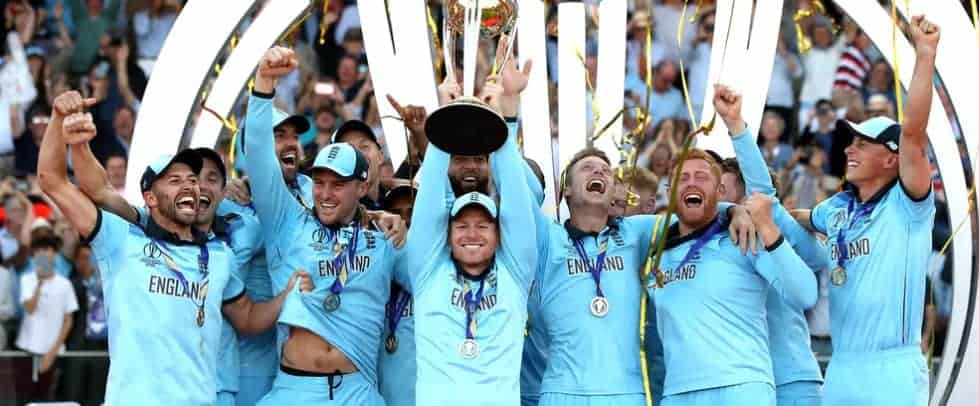To say, “cricket was the winner” doesn’t really cover it. England’s astonishing World Cup victory came off the last ball of a “super over” – a tie-breaker that was only needed because the game itself had ended in a tie.
On the final ball of a tournament that has lasted since the beginning of June it came down to this: New Zealand needed two runs to win, England needed to restrict them to one. If wicketkeeper Jos Buttler had fumbled Jason Roy’s throw as the Kiwi batsmen ran for their lives, the street parties would have been happening in Dunedin and Auckland.
No World Cup final could have been more exciting or demonstrated so clearly the passion, excitement and camaraderie that sport has to offer. Not even cricket world cup betting could have made it more fun. The greatest game of one day cricket of all time? Given what was at stake, without a doubt.
British broadcasters, understandably, were celebrating as hard as anyone. Earlier in the day, BBC Test Match Special began its radio coverage of England’s victorious World Cup final with the words of England skipper Eoin Morgan. The trophy was there to be won he suggested, but there was also an opportunity to promote the game on a “huge platform”.
His words bear some scrutiny. First of course, after losing finals in 1979, 1987 and 1992, Sunday’s victory at last confirmed England’s recent dominance in one day cricket. Secondly, it is significant that England’s captain is an Irishman.
England have never been concerned about their captain’s birthplace or ethnicity. The role has been held, among others, by two other Irishmen, two Welshmen, a Scot, two sons of diplomats born in Trinidad, another in what was formerly known as Bombay, and another in what was previously Madras.
Diversity indeed, has defined English cricket since ultimate batting stylist Prince Ranjitsinhji made his England debut in 1896. In the 2019 semi-final against Australia, it was Jofra Archer — from Barbados with an English father — who drew first blood for England. He played a crucial role in the final – delivering the vital, nerve wracking “super over”, on which the whole championship depended.
Earlier, in the semi-final, the bowler responsible for the crucial removal of two Australian batsman in a single over was Adil Rashid, a Muslim from Bradford. For those celebrating Britain’s cultural mix, the ovation he received as he returned to his fielding position was a special highlight in a day full of them.
Every game’s a home game
The tournament contained other such uplifting moments. India versus Pakistan for example, was played with a bonhomie unimaginable given that when they last met in a World Cup match at Manchester in 1999, the two nations were technically at war.
And the balance of cricketing power undoubtedly now lies in the subcontinent. The MCC recently announced its first non-British president in the form of former Sri Lankan captain, Kumar Sangakkara.
Women’s cricket, meanwhile, is thriving in England, its exponents increasingly recognised for their skill first and their gender second. Indeed, former Australian wicketkeeper Adam Gilchrist recently judged England’s Sarah Taylor to be the best in that position in the world, “male or female”. Seemingly cricket is a model of diversity and inclusivity.
Is anybody out there?
Which brings us to Morgan’s assertion that the game could be promoted on a “huge platform”. Of course, it’s potentially the case – but reality warns us otherwise. Until the final this World Cup, unlike its football and rugby equivalents, was largely hidden from view in the UK behind a Sky paywall.
The public appetite has been healthy enough, with BBC’s head of radio and digital, Ben Gallop, tweeting that even before the final, England’s semi-final was “our biggest live page of the year for any sport”. The audience on Sky though, peaked at around a million. When England’s women footballers played their World Cup semi-final against USA nine days earlier, the free-to-air audience on BBC was almost 12m.
Consequently, suggests former England bowler Vic Marks in The Guardian, England’s cricketers might well feel a little bemused that “such a huge chunk of the country has no idea who they are and how they play” .
When, during the memorable summer of 2005, England cricket last became a national preoccupation, Channel 4’s coverage meant that enquiries about who was “in” and “out” were much more likely to refer to England’s batsmen than the contestants of Big Brother or Love Island.
But with these new enthusiasts on the hook, English cricket promptly threw them back, as, according to David Skelton in the New Statesman, it decided that “revenue was more important than growing the audience for the sport” .
The late deal brokered between SKY and Channel 4 to show Sunday’s final on UK terrestrial TV might be too little, too late. True, it might catch a wave of residual interest, but even so, only cricket could schedule its ultimate showpiece to coincide with the British Grand Prix and the men’s final at Wimbledon. Cricket in England now worryingly slides back behind its paywall.
Change, in the form of a new cities-based competition called “The Hundred” is coming next year. For purists, it is not really cricket at all and, by wooing an audience that it probably already had in 2005, the game is playing fast and loose with a loyal following it already has.
The World Cup might have been won by England, but if if young players in the country don’t get to watch their heroes, it risks wasting something special.
_____________________________________________
By Richard Thomas, Lecturer, Media & Communication, Swansea University
This article is republished from The Conversation under a Creative Commons license. Read the original article.












